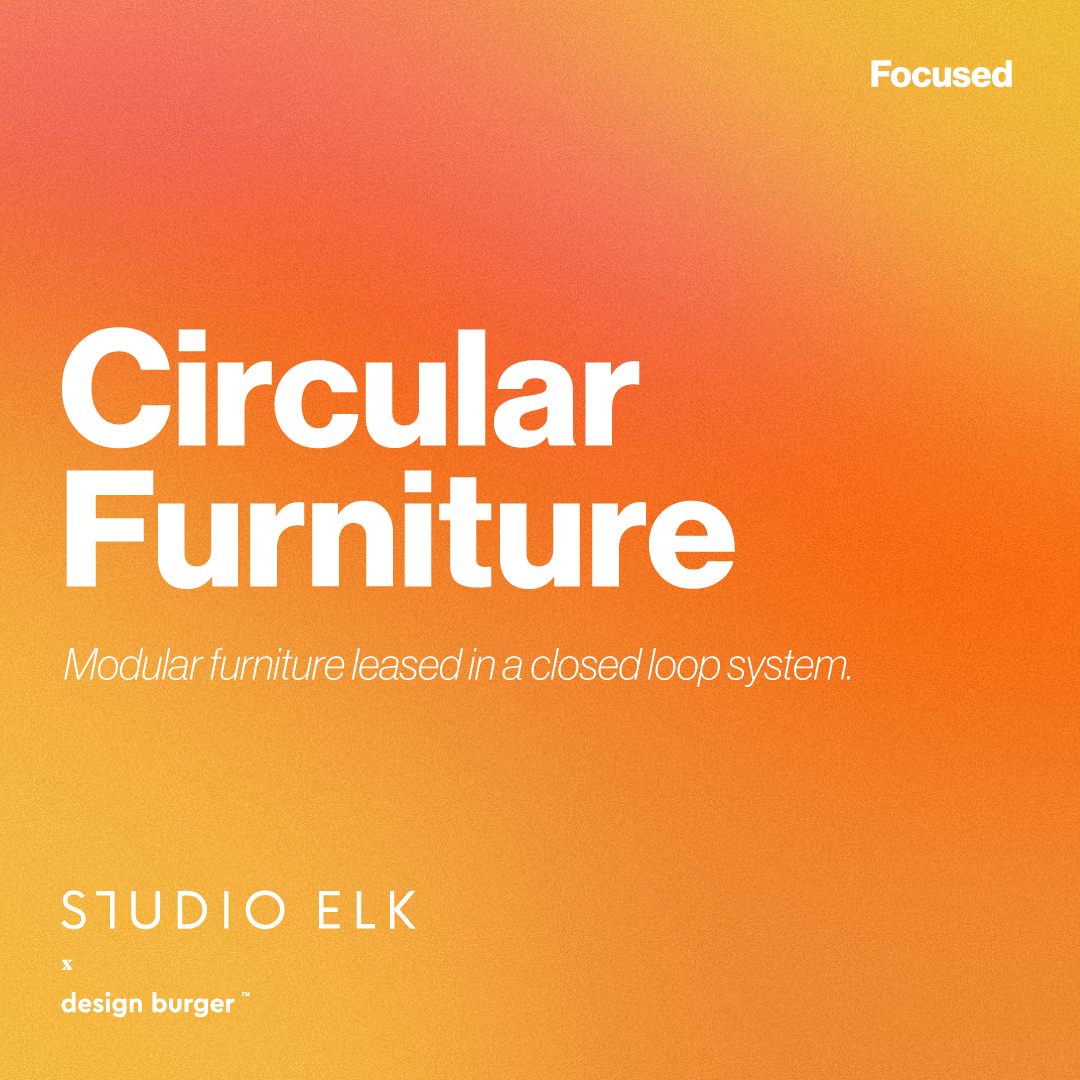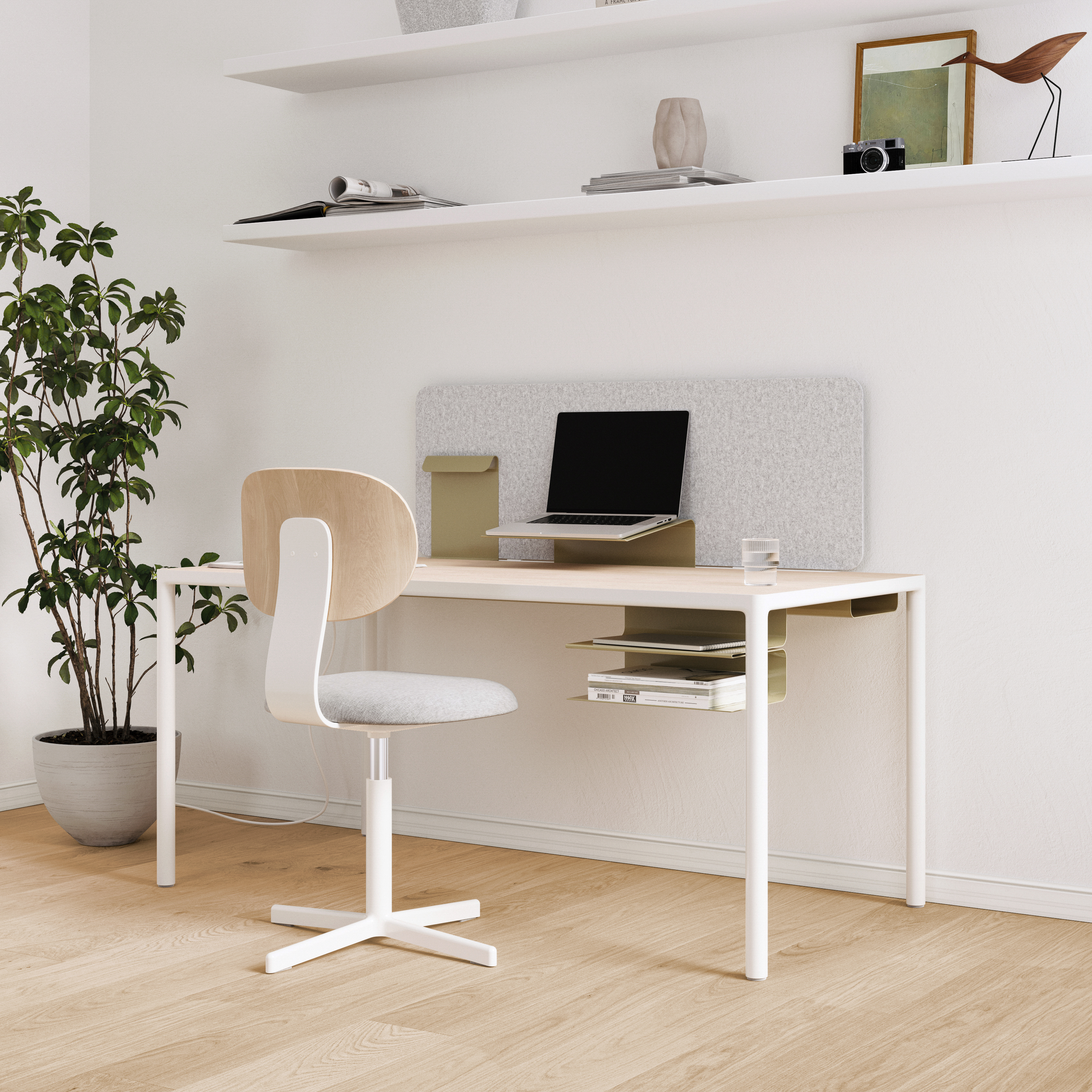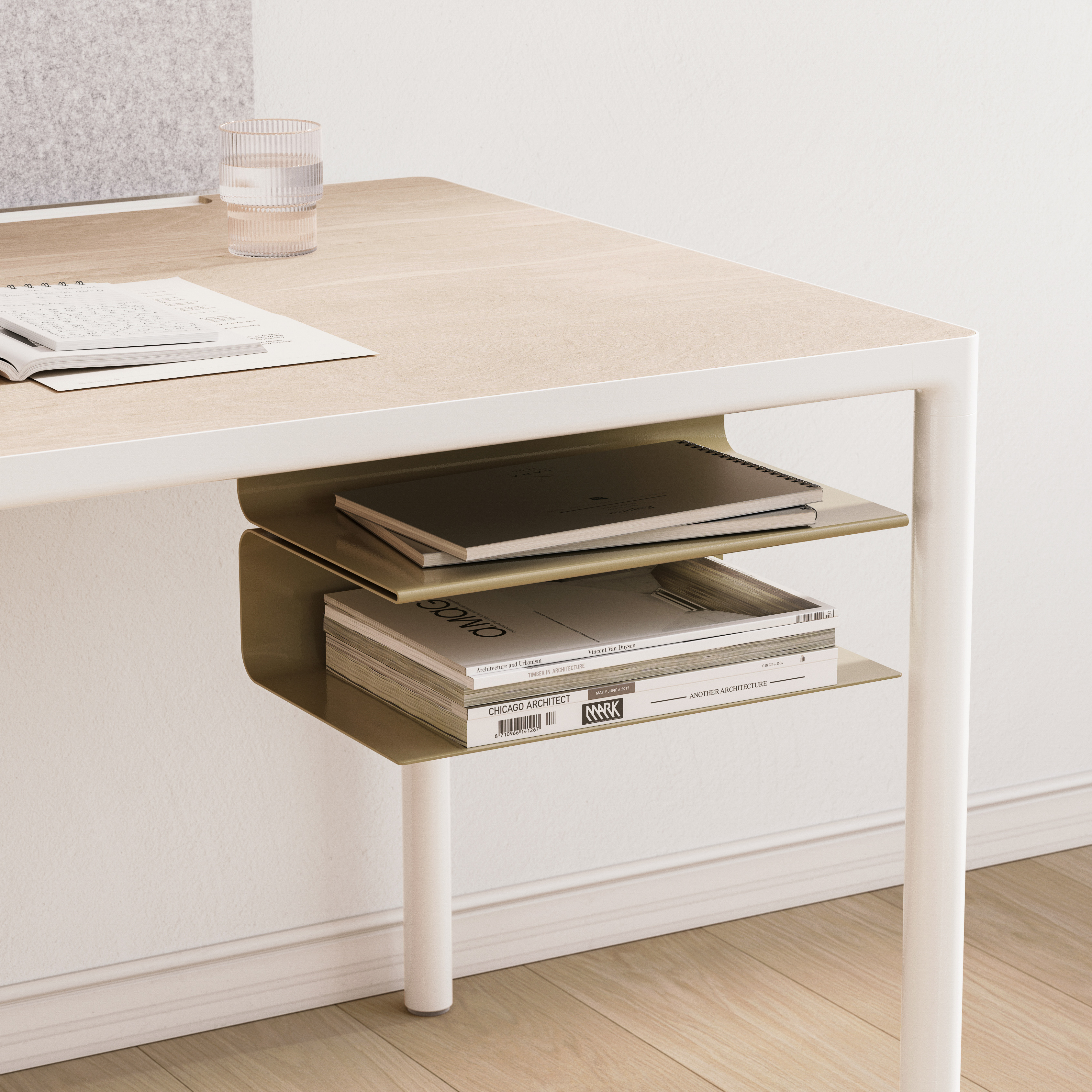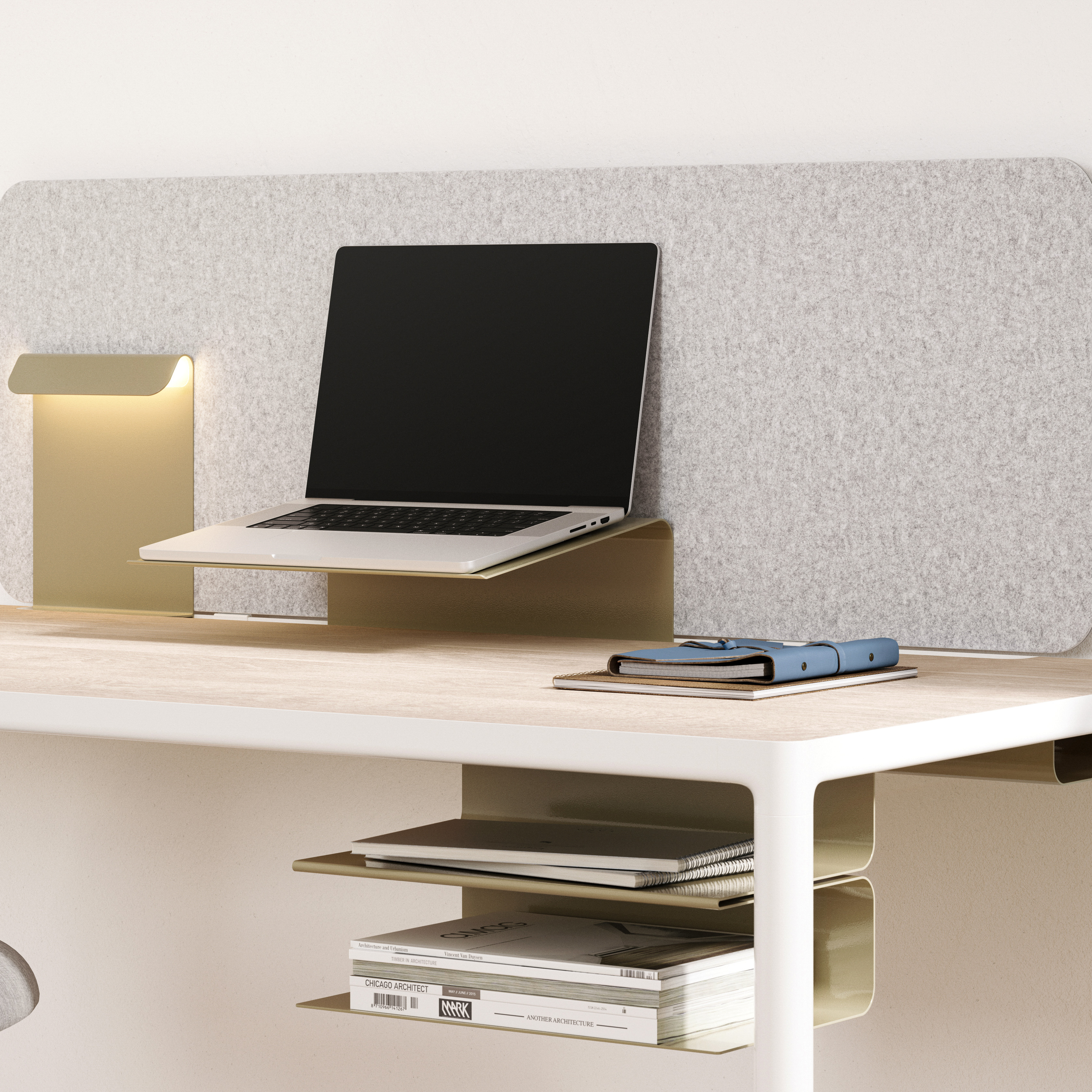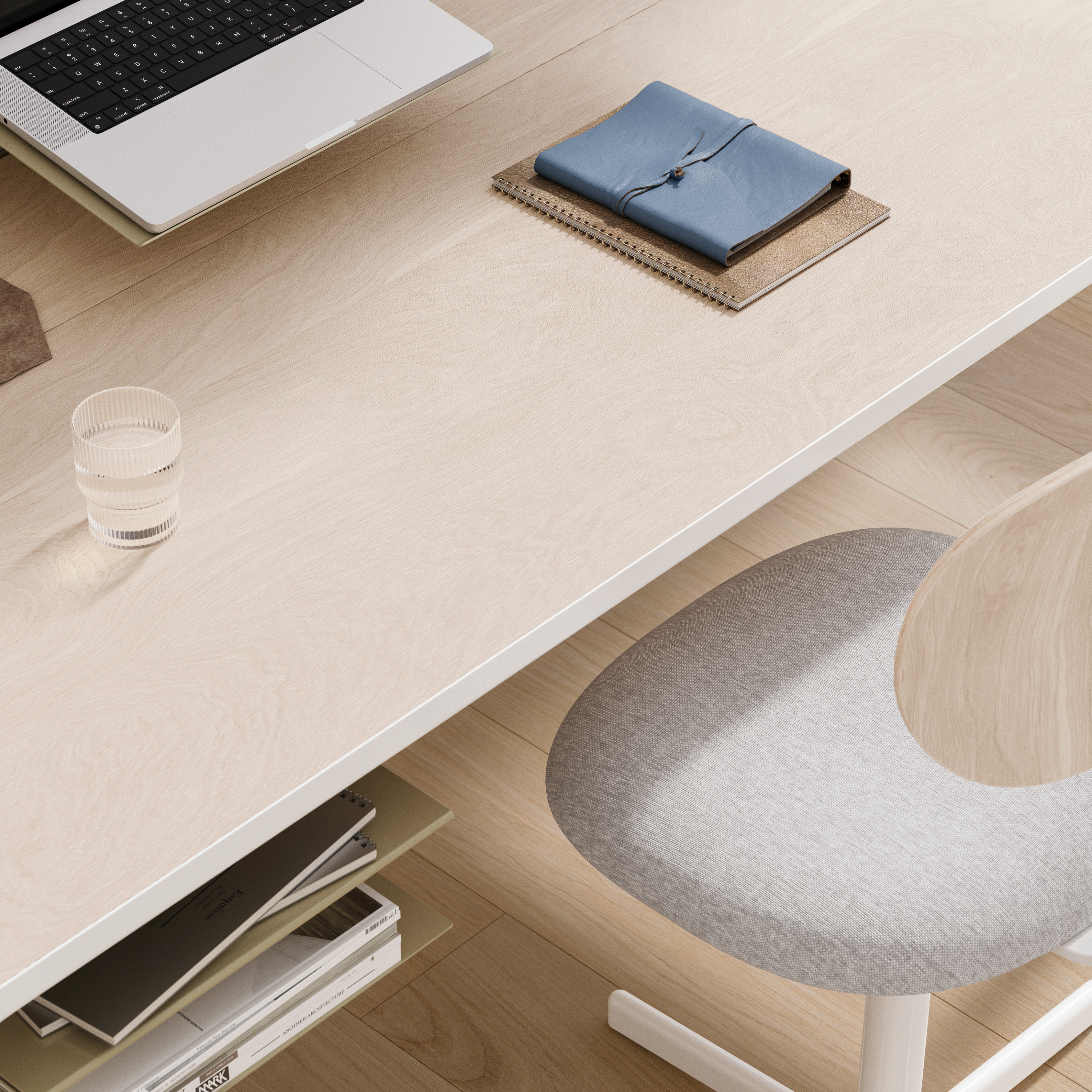Koru furniture subscription service.
In our work helping brands shift towards more sustainable products and practices, the most stubborn hurdle is cost. Many businesses want to act but their measures of success (profit, revenue, growth) force them to prioritise commercial goals over environmental responsibility. In order to truly get businesses behind the cause and drive change at the pace we need, it’s crucial to reframe sustainability as a strategic advantage, not just a corporate responsibility.
The circular economy poses an opportunity to align sustainability with business interests. Circular business models seek to decouple financial growth from environmental impact, allowing businesses to thrive without relying on making, selling and wasting more and more stuff.
We wanted to demonstrate the potential of circular solutions for product brands to simultaneously deliver greater value to their customers, drive business growth and reduce their environmental impacts. The result is Koru: a circular economy concept that offers home-office furniture through a subscription service.


Introducing Koru
The rise in remote and hybrid working has led to an expectation on businesses to provide fit-for-purpose home office setups for their employees. This involves substantial upfront expenses for buying furniture, as well as the logistical nightmare of managing delivery and maintenance of the equipment. As their team changes over time, they also need to collect, store and redistribute the furniture. The sheer cost and inconvenience results in an increase in furniture that is used for short periods and then disposed of.
Koru is a home-office furniture subscription service that allows employers to spread their costs and operate more sustainably while catering to the individual needs of their remote teams. The modular furniture is leased to businesses instead of sold, and designed to be continuously reconfigured and redistributed within a closed-loop system.

Delivering customer value
Koru’s subscription model allows businesses to choose from a range of flexible monthly plans that can adapt to the changing size and requirements of their team. The service includes installation, repair, upgrade and collection when no longer needed – eliminating the time and cost burden associated with maintaining, moving and storing furniture assets.

Employees are able to configure their home office setup to suit their personal needs, space limitations and home interior style. Koru furniture is designed to blend the utility of professional equipment with an aesthetic sensitivity to the home environment.

Aligning planet and profit
Koru furniture moves from home to home, generating a continuous revenue stream over the full lifespan of the product. The Product-as-a-Service model actually incentivises product longevity: the longer the furniture remains in use, the more profit it generates.
The rental model enables greater lifetime value to be gained from each product compared with a one-time sales model. The brand can drive financial growth by focusing on services that extend the lifespan of the furniture and maximise utilisation rates rather than pursuing ever-increasing sales targets.

Design implications
Circular business models work better when the products are designed specifically for the system they will exist within. Our design decisions throughout the project focused on optimising Koru furniture for the service model.
The modular design consists of a system of parts that can be reconfigured to meet the varied needs of multiple users over its lifespan. Designing it to be easy to disassemble and reassemble enables redistribution from user to user and facilitates the repair of individual components.

The furniture needed to be durable and robust in order to maximise lifetime value through the lease model. Materials were selected to be hard-wearing and suitable for recycling within a closed-loop system. We also aimed to minimise the number of materials to allow for easier management of material flows.
It was important to balance the utility of professional office furniture with the softness of the home environment. The range of accessories support productivity, ergonomics and storage, while softer forms and tactile materials complement the domestic context.

The opportunity for businesses
We hope Koru inspires more brands to explore what the circular economy means for them. What business wouldn’t want to take action against the climate crisis while unlocking new revenue streams?
We’ve summarised a few key learnings to take away from our case study:
- Providing services that support the longevity and reuse of your products is a powerful way to generate revenue that isn’t linked to making more products/waste.
- The continuous revenue stream on offer through subscription models requires valuable ongoing benefits that customers are willing to pay for month after month.
- The success of circular business models can hinge on the design of the product and its materials.
It’s worth pointing out that Koru’s Product-as-a-Service model isn’t the only way to build a circular business, and it won’t be appropriate for every business to switch to product rental. Different products lend themselves to different approaches, but every business has opportunities to reduce waste while driving business growth through circular design.
If you would like some support in figuring out which circular economy strategies make sense for your unique situation, send us an email at hello@studio-elk.com. And of course, we’d love to realise the potential of Koru and would welcome opportunities to make the concept a reality with the right partner!
